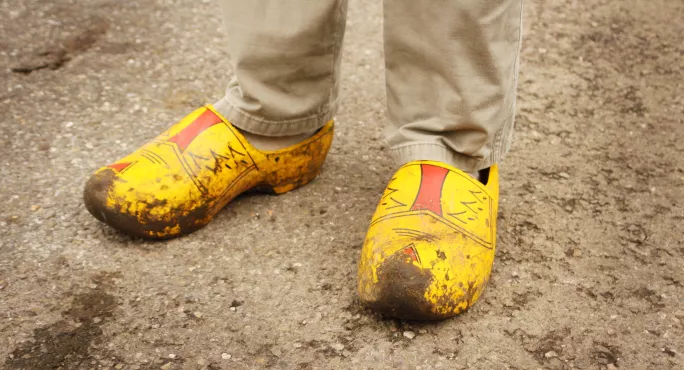So, the education secretary has gone to Germany and the Netherlands in a bid to find the elixir for everlasting FE glory.
Damian Hinds is right to be visiting Holland and Germany to investigate the education systems there and to look for solutions to the problems facing further education here in the UK.
Unfortunately, his visit will only offer him a partial solution because he is going there with partial vision, blinkered and limited by looking through the lenses of market economics.
Damian Hinds ‘is cherry-picking’
Just like on its visits to Singapore and Shanghai, the government wants to cherry-pick. It ignores the fact that education success stories are much more than a sum of the various inputs and systems. Such triumphs exist within a cultural and social context.
Perhaps I look through rose-tinted spectacles when it comes to Holland, as I have many relatives living there. Their grasp of English is impressive, as is their facility with other languages around them, such as French and German.
They expect to be able to converse in more than one language and have a regular TV diet of English, Australian and US programmes, as well as films in English - and they don’t use dubbing to make sense of the dialogue.
But then Holland and Germany are at the centre of a prosperous European trade alliance and have not suffered the same economic slump that we have. They recognise the value of partnerships.
This mindset has implications for the educational opportunities of their teenagers who can travel internationally for work experience on the continent and to Britain or the USA.
Apart from anything else, Holland has struck me as a more equal and far less polarised society than the UK. House prices are not beyond the reach of its younger citizens, and the housing stock is rather better maintained. Such things make a difference. People can expect financial security.
‘Shockingly low’ FE teacher pay
There is a much closer parity of esteem between technical and managerial occupations. The academic/vocational divide is not the rift it is for us.
Therefore, vocationally-orientated education is valued much more. Perhaps this has more bearing than anything else.
The slump in funding for FE in the UK - and the shockingly low rates of pay for its teachers, rates which seem more and more depressed as time goes on - demonstrates all too clearly how little successive governments have valued the half of the population that doesn’t go to university.
Apprenticeship focus on managers
Even when apprenticeships are discussed, it’s the managerial ones we seem to care about most: for graduates or the top A-level candidates with their “fast-track” to the apex, while the base of the triangle is neglected.
The appallingly low hourly rate for some apprentices, stuck in low-pay industries, has still not been addressed. Their apprenticeships are so often at the whim of the unstable markets that exist in those sectors.
Take the equine industry - one of the worst examples. Riding and livery stables are businesses that are often hand-to-mouth.
‘Respect for skilled-workers’
Some survive on apprenticeship labour and can offer good training in return. But no one considers what happens to apprentices when a business ceases to operate or changes focus.
Where are the contingency plans to help an apprentice who is linked to a failing business? And those supervising apprentices frequently have very heavy caseloads. It’s a system creaking under the strain because the business environment lacks stability.
On a work placement in a British car factory, I learned about the “Meister” system in Germany. The employees I interviewed in my subsequent research project had great respect for their international counterparts. Why don’t we have that level of respect for skilled workers? And why don’t we invest in people long-term?
‘Dutch pancakes and coffee’
Perhaps it’s because those in charge of vocational training and education in the UK are too ready to leave it all to the markets. Markets are not a stable foundation on which to base the nurturing of the skilled employees of tomorrow.
I hope that in between enjoying Dutch pancakes and coffee Damian Hinds will have had the time to be impressed with the prosperity that genuine investment brings.
But will he bring the right lessons home?
Yvonne Williams is head of English and drama at a school in the south of England






